Council planning bosses recommend T in the Park approval
- Published
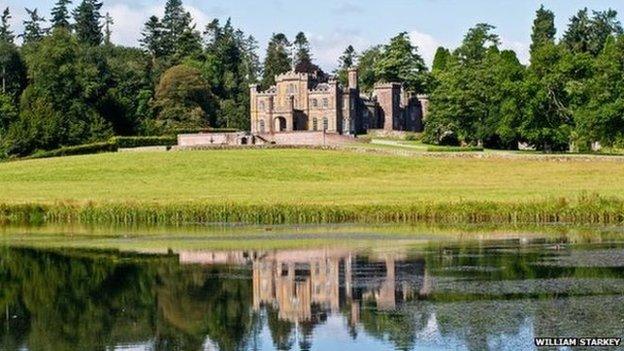
DF Concerts wants to hold the music festival at the Strathallan estate on an annual basis
Perth and Kinross Council planning bosses have recommended approving the proposal to move T in the Park festival to Strathallan Castle.
Councillors are to make a decision on an application from DF Concerts for the music festival on 12 May.
The proposed move has drawn criticism from some local residents and wildlife campaigners.
Development Quality Manager Nick Brian recommended backing the festival for three years to assess its impact.
Mr Brian said the proposal, which was in line with the local authority's Development Plan, ought to be approved for 2015, 2016 and 2017. He said this would allow monitoring to take place of all aspects of the festival, informing whether it should have a longer-term future at Strathallan.
However he included in his report to councillors a list of 45 conditions which would need to be met in order for the event to go ahead.
'Major hazard'
In his report to the Development Management committee, Mr Brian noted that the festival was to move from Balado, its home since 1997, due to a "major hazard" from a pipeline running under the site.
The event would see more than 85,000 people visit the festival, along with 7,500 staff, at a site spanning 325 hectares.
In addition to the five main days of the festival, running from Thursday 9 July through to the following Monday, several weeks of commissioning and de-commissioning works including site assembly and litter picking would take place.
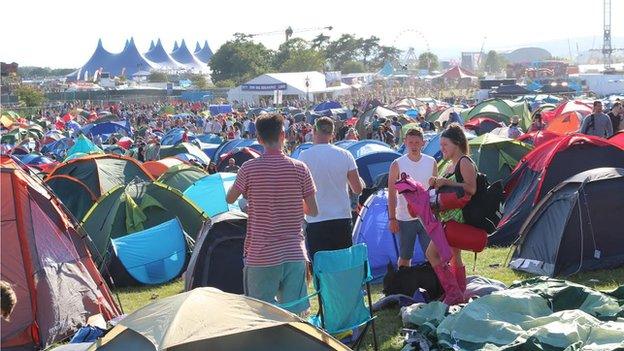
More than 85,000 people attend the T in the Park festival every summer
Two 28-day public consultations were held over the plans, prompting a huge public response - the final consultation was extended by a day after high levels of interest caused the council's planning website to crash.
Across the two consultations, a total of 2,433 letters of representation were received by the council. These included 1,626 objecting to the plans, 793 in support of them, and 14 neutral.
In addition, a petition bearing 1,922 signatures supporting the application was submitted.
Wildlife concerns
Particular concerns were raised about traffic arrangements for the event, antisocial behaviour, and impact on the local wildlife.
The plight of protected ospreys which nest near the festival site was of particular concern, with Scottish Natural Heritage noting in their consultation response that there was a residual risk of disturbing the birds - potentially a criminal offence while they are nesting.
DF Concerts worked together with RSPB Scotland to come up with a mitigation plan to protect the birds, with the wildlife charity insisting on a 500 metre buffer zone during the period when chicks could be present in the nest.
One of the conditions Mr Brian stipulated for approval of the event was the implementation of a detailed Osprey Management Plan, including monitoring of the nests, banning the use of fireworks at the festival and any use of access tracks adjacent to the nests.
Protection plans for animals including bats, otter and red squirrels have also been put in place.
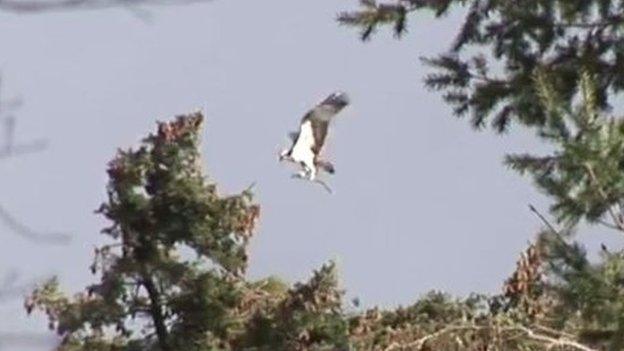
Ospreys which have been nesting in trees near the festival site are afforded special protection
Supporters of the event pointed to the economic benefits, with experts estimating that previous festivals had benefited the Scottish economy by £15.4m, and the local economy by £2.7m.
The report stated that the search for a new home for the festival began in 2011, with the many options considered eventually narrowed down to Strathallan and Drumdowie, on the nearby Drummond Estate.
Drumdowie was initially the favourite, but Strathallan was eventually chosen due to the aesthetics of its parkland setting - a "key consideration" - as well as its minimal use of public road crossings and proximity to powerlines.
The council's transport planning group agreed that there was "sufficient road capacity" to accommodate traffic for the event, which could include a total of just under 69,000 vehicle movements, but said they were "disappointed with the content" of the initial traffic management plans submitted.
They noted that it was "reasonable to assume" that there would be "traffic delays and disruption", adding a condition that local access roads should be surveyed and upgraded before and after the event each year, at the expense of the applicant.
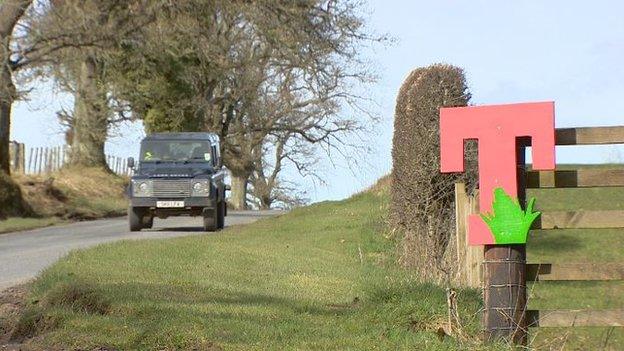
A number of conditions relating to traffic management were attached to the recommended approval
Mr Brian said that after "careful consideration" of the application, consultation responses and letters of representation both for and against the plan, the proposal was in accordance with relevant national, regional and local planning legislation and should therefore be approved.
He said the mitigation measures outlined in the environmental survey and addendum were "considered to be appropriate", and noted that no statutory consultees had raised a formal objection to the proposal.
However, he noted that "certain issues can only be ascertained and reviewed after the event has taken place". As such, he said it would be appropriate to grant consent for a temporary period of three years, so the authority could review the impact of the festival and inform future decisions.
The Development Management committee will debate the application on 12 May.
'Serious questions'
A spokeswoman for T in the Park said the recommendation was "excellent news".
She said: "We're confident the committee will recognise that we can meet any conditions and ensure all measures are in place to secure the long-term protection of the estate as well as a positive future for T in the Park at Strathallan Castle."
A spokeswoman for the Strathallan T Action Group, a group of residents who oppose the move, said councillors would have "plenty to think about".
She said: "Certainly in terms of the osprey management plan, there seem to be serious risks attached as well as major challenges for organisers DF Concerts.
"The new plan appears to involve an experimental approach to disturbance prevention during the construction period and then token protection once the festival begins. Any disturbance, whether intentional or reckless, is a criminal offence.
"If the festival is given the go-ahead without realistic and adequate protection for these birds, some very serious questions will be raised."
- Published24 April 2015
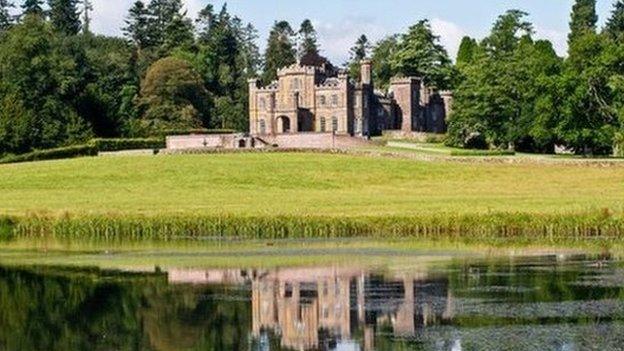
- Published11 April 2015

- Published7 April 2015
